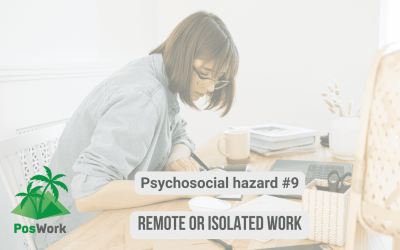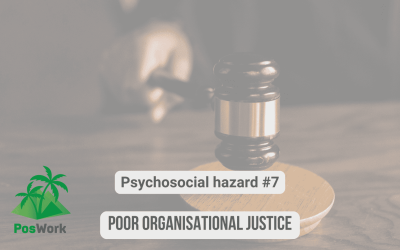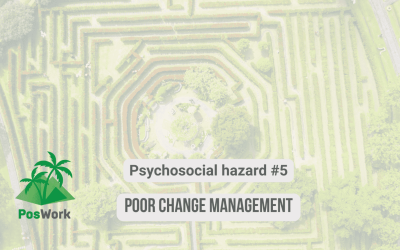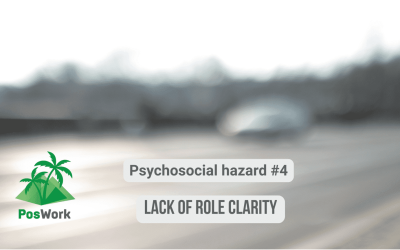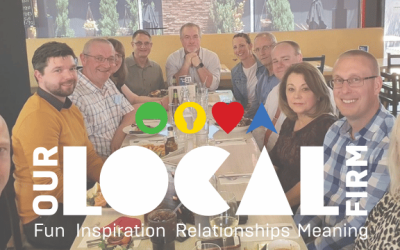BLOGS AND Stories

BLOGS
A collection of our own articles and other blogs of interest in the BETTER WORKPLACE theme.
Psychosocial hazard #9 – Remote or Isolated Work
Whether it is working away from home for extended periods or working at home on your own or working solo out in the field like a truck driver, there are lots of different ways that people can be affected by having to perform remote or isolated work.
Psychosocial hazard #8 – Traumatic Events or Materials
Should be no surprises here that when people are exposed to traumatic events or materials that they can also experience risks of psychosocial injury or illness. What you might not recognise as much is that this is a hazard which can impact incrementally over time – for example with people who deal with people in difficult circumstances or people behaving badly day in day out
Psychosocial hazard #7 – Poor Organisational Justice
Ever heard someone say “that’s not fair”. Whether it is because there is a perception that a policy or a rule is not fair or because people are treated differently or some other cause, when things are not done in an organisationally just way, people get upset and that presents risks.
Psychosocial hazard #6 – Inadequate Reward and Recognition
This isn’t just about pay – it involves a lot more than that. Are people treated respectfully? Do they get recognition for the contributions that they make? Are their skills and abilities appreciated? Are their persona/circumstances recognised? Is the workplace diverse, equitable and inclusive? Just some of the questions to think about here.
Psychosocial hazard #5 – Poor Change Management
Change management very commonly comes up in staff surveys as one of the key areas for improvement – whether it be that people don’t understand the reason for change or they do not feel that they have been properly consulted or that they feel unfairly affected by change or for a number of other reasons. This is one of the most prevalent psychosocial hazards in play at work.
Psychosocial hazard #4 – Lack of Role Clarity
People might not be clear about their roles or the reporting arrangements of how processes are supposed to work or who is responsible for what or what their priorities are or a number of other matters that can cause lack of role clarity.
The importance of psychological safety
Professor Amy Edmondson explains what psychological safety is and why it is important
Harvard Business Review on Psychological Safety
This video explores team psychological safety, what it is, why it is important and how to build it
Self-regulation and leadership
Blogs and Stories The character strength of self-regulation is one that plays a significant part in how people are seen as leaders and how they see themselves as leaders. Those who are adept at managing their emotions, thoughts, and behaviours in the face of...
A character case study
I want to share with you one of the most remarkable experiences I have had in my life. Over the past few months, I have been a volunteer on a political campaign by a first time independent candidate in our federal election. It has been inspirational, frustrating,...
Our Local FIRM is back
At PosWork, we believe that we have a role to play in helping community-minded small business owners to build positive relationships with others and support each other in their ventures in business and life. That's why we run Our Local FIRM lunches: to have a bit of...
Celebrate International Fun At Work Day
April 1 is "International Fun At Work Day", which is a great time to reflect on ways that we can make work fun. After all, as a very wise man once said to me: "Peter, you spend a third of your life at work so you had better enjoy it". Here are 10 ideas on having fun...
VIDEOS
Our videos are a mix of explainers on various elements of making BETTER WORKPLACES and stories on good practices that we have come across or been involved in.
Psychosocial hazard #8 – Traumatic Events or Materials
Should be no surprises here that when people are exposed to traumatic events or materials that they can also experience risks of psychosocial injury or illness. What you might not recognise as much is that this is a hazard which can impact incrementally over time – for example with people who deal with people in difficult circumstances or people behaving badly day in day out
Psychosocial hazard #7 – Poor Organisational Justice
Ever heard someone say “that’s not fair”. Whether it is because there is a perception that a policy or a rule is not fair or because people are treated differently or some other cause, when things are not done in an organisationally just way, people get upset and that presents risks.
Psychosocial hazard #6 – Inadequate Reward and Recognition
This isn’t just about pay – it involves a lot more than that. Are people treated respectfully? Do they get recognition for the contributions that they make? Are their skills and abilities appreciated? Are their persona/circumstances recognised? Is the workplace diverse, equitable and inclusive? Just some of the questions to think about here.
Psychosocial hazard #5 – Poor Change Management
Change management very commonly comes up in staff surveys as one of the key areas for improvement – whether it be that people don’t understand the reason for change or they do not feel that they have been properly consulted or that they feel unfairly affected by change or for a number of other reasons. This is one of the most prevalent psychosocial hazards in play at work.
Psychosocial hazard #4 – Lack of Role Clarity
People might not be clear about their roles or the reporting arrangements of how processes are supposed to work or who is responsible for what or what their priorities are or a number of other matters that can cause lack of role clarity.
The importance of psychological safety
Professor Amy Edmondson explains what psychological safety is and why it is important
CONTACT US
PosWork
A Division of Ridgeline Human Resources Pty Ltd
ABN : 24 091 644 094
info@poswork.com.au
0438 533 311
QUICK RESOURCE LINKS
